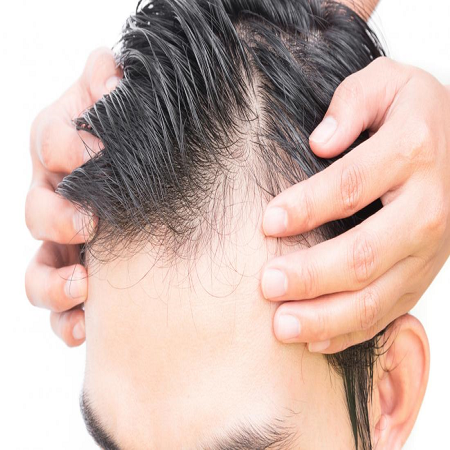Baldness Treatment for Male - Dubai
Baldness, also known as androgenetic alopecia, is a common condition that affects many men. While there is no definitive cure for baldness, there are several treatment options available that can help slow down hair loss and promote hair regrowth in some cases. Here are some common treatments for male baldness:
- 1. Medications:
- • Minoxidil: This over-the-counter topical medication is applied directly to the scalp and is available in various strengths. It helps promote hair growth and may slow down hair loss.
- • Finasteride: This prescription medication is taken orally and works by inhibiting the conversion of testosterone into dihydrotestosterone (DHT), a hormone that contributes to hair loss.
- 2. Hair Transplantation:
- • Follicular Unit Transplantation (FUT): Also known as strip harvesting, this procedure involves removing a strip of hair-bearing skin from the back of the head and transplanting individual hair follicles into the balding areas.
- • Follicular Unit Extraction (FUE): In this procedure, individual hair follicles are extracted from the donor area (usually the back of the head) using a small punch tool and then transplanted into the balding areas.
- 3. Low-Level Laser Therapy (LLLT):
- • LLLT devices emit red light at a specific wavelength, which is believed to stimulate hair follicles and promote hair growth. These devices can be used at home or in specialized clinics.
- 4. Scalp Micropigmentation (SMP):
- • SMP is a non-surgical procedure that involves tattooing tiny dots on the scalp to give the appearance of a closely shaved head or fuller hair density.
- 5. Hairpieces and Wigs:
- • These are non-surgical options that provide immediate coverage for balding areas. Hairpieces and wigs can be customized to match the individual's hair color and style.
It's important to note that the effectiveness of these treatments can vary depending on factors such as the extent of hair loss, individual response, and adherence to treatment. Consulting with a dermatologist or a hair restoration specialist can help determine the most suitable treatment approach for your specific situation.

